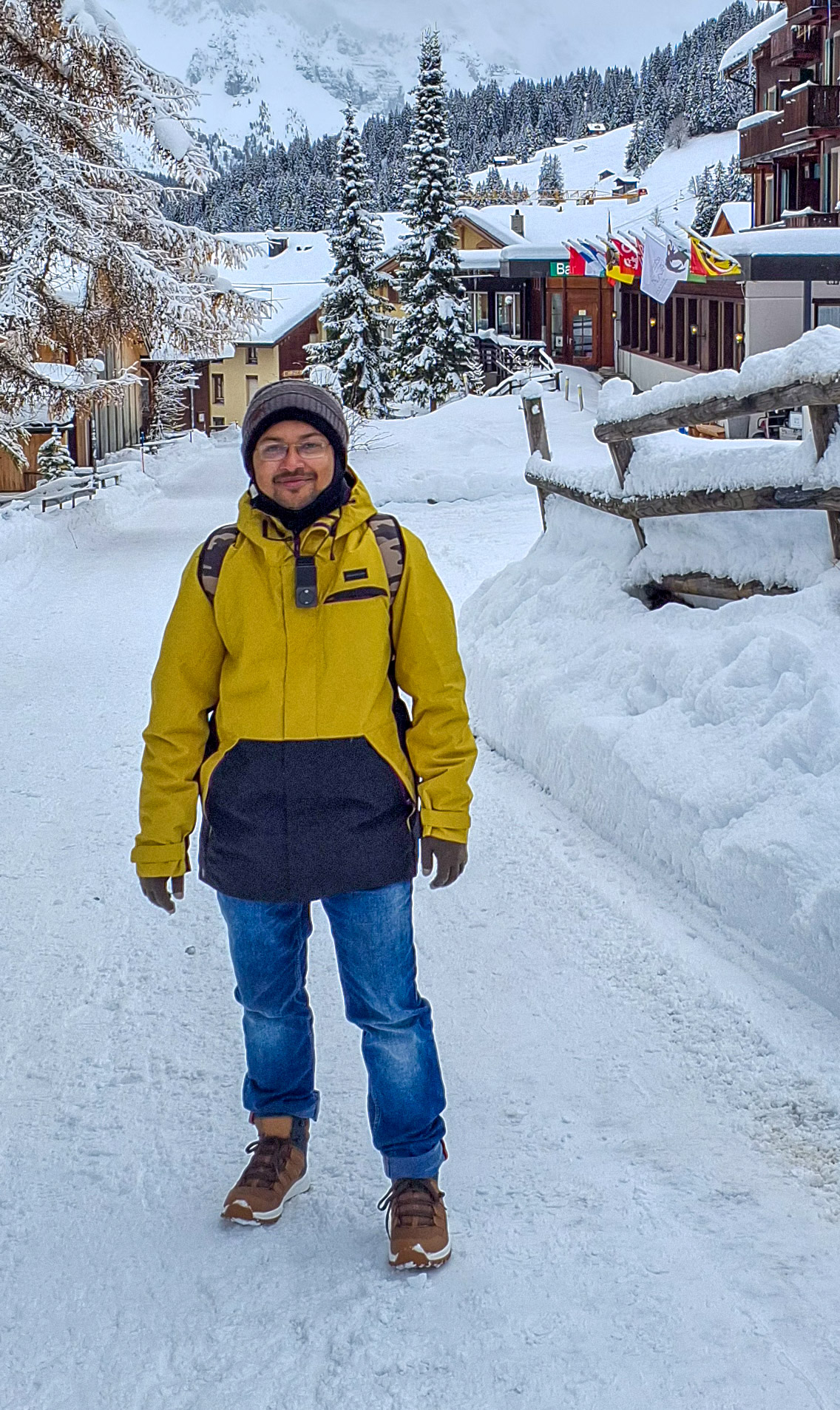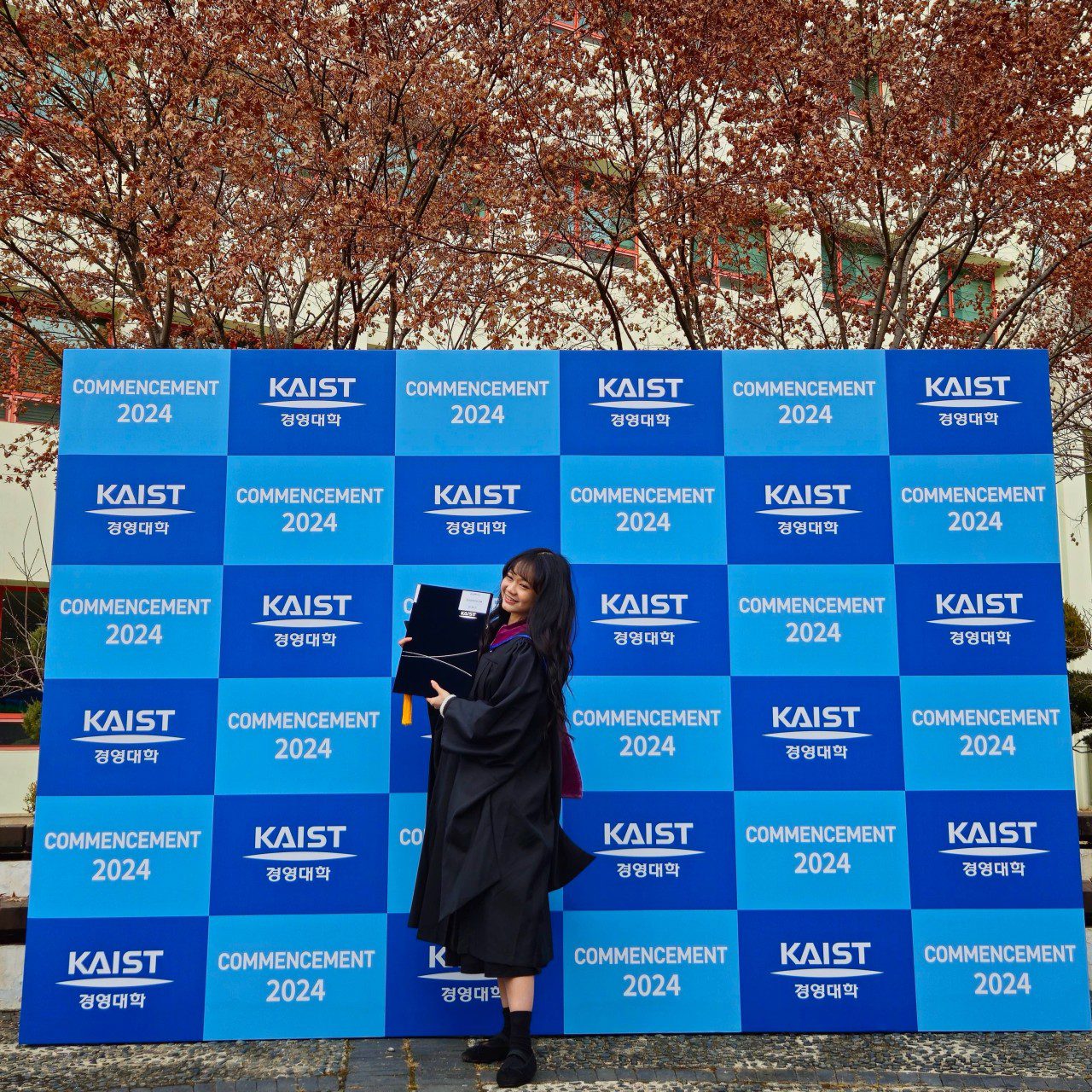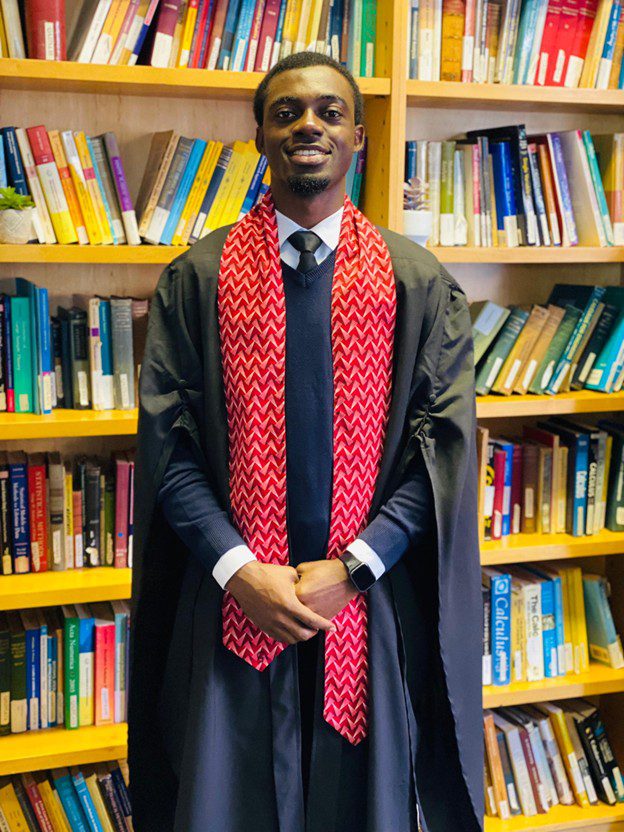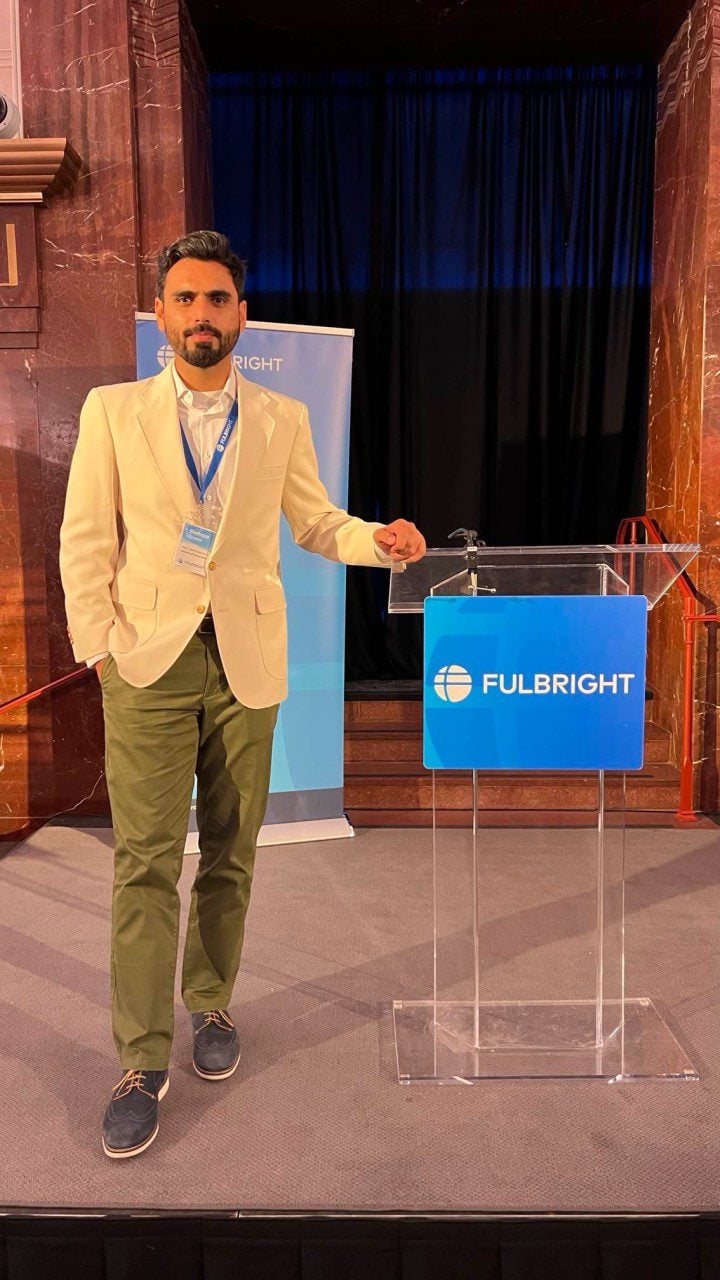How an Indian Researcher Secured the Fully Funded Swiss Government Excellence Postdoctoral Scholarship for In-silico Brassica Research at the University of Fribourg
University: University of Fribourg
Scholarships Offered: Swiss Government Excellence Postdoctoral Scholarship
Previous Education:
- PhD in Botany, University of Calcutta, India (2016–2021)
- MSc in Botany, Presidency University, India (CGPA: 7.85)
- BSc in Botany (Honours), Presidency College, India
Notable Achievements:
- Published research on improving sesame crops for disease resistance and oil yield
- International fellowships, including Newton-Bhabha Fellowship and French Excellence Research Residency
- Research collaboration at esteemed institutions like INRAE, France, and the University of York, UK
Social Media:
LinkedIn: linkedin.com/in/debabratadutta/
Twitter: x.com/iamDebabrata

The Journey
My name is Debabrata Dutta, and I am currently a postdoctoral researcher at Heriot-Watt University, UK, supported by the prestigious Marie Skłodowska-Curie Actions Postdoctoral Fellowship under the UKRI Guarantee Scheme. Originally from Kolkata, India, I obtained my Ph.D. in Botany from the University of Calcutta, where my research focused on improving oilseed crop sesame for sustainable agriculture by enhancing disease tolerance and oil yield. Throughout my early career, my research aligns with the United Nations Sustainable Development Goals (UNSDGs), particularly Zero Hunger (UNSDG2), by striving to develop better-yielding crops, and Climate Action (UNSDG13), by promoting pesticide-free, disease-resistant crop varieties. Through these efforts, I aim to contribute to global food security and sustainable agricultural practices.
Swiss Government Excellence Scholarship Details
The Swiss Government Excellence Scholarship is a highly prestigious program that supports researchers, scholars, and artists from over 180 countries to pursue advanced studies or research in Switzerland, fostering global academic and cultural exchange. The Research Scholarship—available for research fellowships, PhD, or postdoctoral studies—is open to postgraduate researchers from any discipline who hold at least a master’s degree and plan to undertake research or further studies in Switzerland. The Art Scholarship is specifically designed for students pursuing an initial master’s degree in arts at Swiss institutions.
I was honoured to receive the Swiss Government Excellence Postdoctoral Scholarship (2023–2024) for my project titled “An In-silico Approach to Improve Growth-Defense Trade-offs in Oil-Producing Brassica” at the University of Fribourg, under the supervision of Dr. Markus Geisler. The scholarship provided me with a monthly living allowance of 3,500 CHF, a one-time housing deposit allowance of 300 CHF, a half-fare travel card valid for one year, coverage for my return flight to my home country, and comprehensive health insurance. Moreover, the Federal Commission for Scholarships for Foreign Students (FCS) organized monthly tours and cultural dinners, enabling scholars to experience Swiss food and culture while fostering academic and cultural exchange during my stay.
Educational Background
While applying for the Swiss Government Excellence Scholarship, I was a postdoctoral fellow at University College Dublin, Ireland, where I was working on Septoria Tritici Blotch disease of the crop wheat. Before that, I completed my PhD in Botany (2016–2021) at Bose Institute, India, focusing on sesame breeding to enhance oil quality and disease resistance. I also hold an MSc in Botany from Presidency University, India, with a CGPA of 7.85, and a BSc in Botany (Honours) from Presidency College. I have done research at esteemed international institutions such as French National Research Institute for Agriculture, Food and the Environment (INRAE), and the University of York in the UK. These opportunities equipped me with a multidisciplinary approach and innovative problem-solving capabilities, essential for tackling complex challenges in plant science. My education provided a strong foundation in plant sciences, molecular biology, and computational tools, enabling me to design and execute the interdisciplinary project proposed for the Swiss Government Excellence Fellowship.
How Did You Prepare to Apply for the University of Fribourg?
My preparation began with identifying institutions and labs that aligned closely with my research interests. During my PhD, I worked on a project where we computationally measured the binding affinity of a plant resistance (R) gene, a critical factor in its function and role in disease resistance (Dutta et al., 2021, Physiological and Molecular Plant Pathology). This theoretical approach highlighted the potential to validate such interactions experimentally, which requires advanced skills and techniques. Over internet search, I found Dr. Markus Geisler at the University of Fribourg, Switzerland, an expert in plant hormone auxin biology, capable of experimentally measuring such binding affinities. Recognizing the alignment between my computational biology expertise and his experimental capabilities, I contacted Dr. Geisler. I explained how my skills could complement his lab’s research while offering me the opportunity to learn advanced experimental techniques from a leader in auxin biology.
Swiss govt excellence does not require tests like the GRE or TOEFL. Knowledge about German, French, or Italian is beneficial but not absolutely necessary.
How Did You Prepare to Apply for the Swiss Government Excellence Scholarship?
I began preparing for the Swiss Government Excellence Scholarship as early as 2019 by strengthening my CV with achievements that showcased my research capabilities and academic potential. This included securing prestigious fellowships like the Newton-Bhabha Fellowship or French Excellence Research Residency, publishing my research in renowned journals, and presenting oral seminars at international conferences such as the 3rd Agricultural and Climate Change Conference in Budapest, Hungary. When applying in 2022, I proposed a project focused on improving growth-defense trade-offs in oil-producing Brassica using advanced computational techniques. Inspired by Dr. Markus Geisler’s work on the plant hormone auxin transporter ABCG36, I designed a study to explore its molecular specificity and role in balancing growth and defense. My research aimed to contribute to developing Brassica varieties with enhanced oil yield and disease resistance. I sought feedback from Markus to refine the proposal and ensuring it aligned with the host institution’s aims and objectives. My motivation letter highlighted my previous achievements, research contributions, and future goals, presenting a clear and compelling story for the scholarship.
What Do You Think Made Your Application Stand Out?
My application stood out due to several key factors:
- Strong Research Proposal: It addressed a globally significant challenge—balancing growth-defense trade-offs in crops—by utilizing advanced computational techniques like AlphaFold (Nobel Prize in chemistry, 2024), making it both innovative and impactful.
- International Experience: My prior exposure, including the Newton-Bhabha Fellowship, highlighted my commitment to international collaboration and adaptability in diverse research environments.
- Relevant Publications: A few significant publications demonstrated my expertise and provided a solid foundation for successfully executing the proposed project.
- Renowned Host: The mentorship of Dr. Markus Geisler, a globally recognized expert in auxin biology, significantly bolstered the credibility of my proposal.
- Strong Recommendations: I received strong letters of recommendation from my PhD supervisor, Prof. Dr. Gaurab Gangopadhyay, and Dr. Andrea Harper from the University of York, with whom I collaborated as a visiting fellow.
What Would You Have Done Differently If You Are Going Through the Process Again?
I achieved success on my second attempt at applying. During my first attempt, I had not yet completed my PhD, which may have impacted my application. However, with my PhD degree in hand during the second attempt, I was able to strengthen my application. While the core structure of the project remained the same, I placed greater emphasis on its applied aspects, making the proposal more compelling and ultimately leading to its acceptance.
What Advice Would You Give Those Looking to Apply for a Similar Scholarship?
Finding a suitable host supervisor is crucial and can account for 50% of the work in securing a scholarship. It’s a competitive process, so starting early is essential. In my case, two Swiss professors agreed to host me, but I chose Dr. Markus Geisler’s lab as it aligned more closely with my background and research goals. For a strong application, customize your research proposal and motivation letter to align with the host institution’s objectives. Share your drafts with mentors and peers to receive constructive feedback and refine your submission. While the process is competitive, it is achievable with thorough preparation. For instance, in the 2023–24 academic year, approximately 610 applications were received, and 368 applicants successfully enrolled at various Swiss universities (Source: twitter/X @Swiss_FCS). This demonstrates that with a well-prepared application and all required documents in place, there is a strong chance of success.
Want to submit your
scholarship journey?
Submit Your Story Here!
More Scholarship Recipients

My name is Vania Estrellita Soegiarto, and I am from Indonesia. I pursued a Finance MBA at KAIST Business School in South Ko .... Read more

Hello, I’m Toyeeb Olamilekan Abubakar from Nigeria. I earned a Bachelor of Science degree in Statistics from the Universit .... Read more

My name is Shehryar Jafar, and I’m from Karachi, Pakistan. I’m currently a PhD student in Electrical Engineering at the .... Read more

Leave A Comment